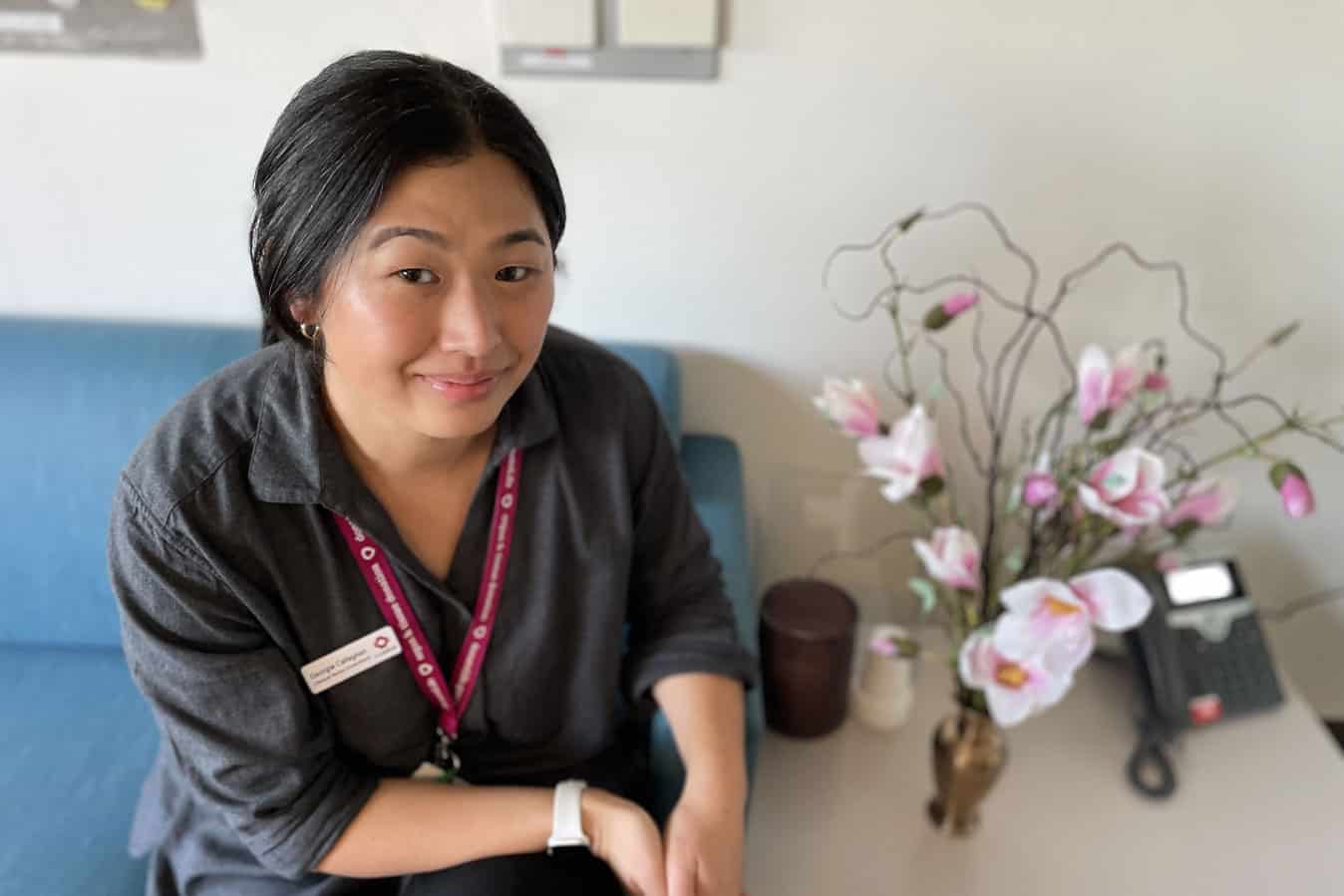“For most Australians, who are otherwise fit and well, they just don’t ever think that they’ll be in that situation,” says Georgina Callaghan, Donation Specialist Nurse Coordinator at The Alfred, on the challenges of raising awareness about the life-changing importance of organ and tissue donation.
Statistics show that while 4 in 5 Australians support donation, there are around 13 million people aged 16 and over who are eligible to register – but haven’t.
During DonateLife Week, running from 23-30 July, Australians are being asked to spare a minute of their time to sign up and register for organ and tissue donation. They are also being encouraged to have conversations with family and friends about wanting to become a donor.
There are currently about 1,800 people on the organ waitlist, including around 70 people waiting for a life-saving heart and 1,450 people waiting for a kidney. Critically, one organ donor can save the lives of up to seven people and change the lives of many more through eye and tissue donation.
DONATE LIFE WEEK 2023 – Two asks
- Could you donate 1 minute to give someone a lifetime? Register now at donatelife.gov.au or with just 3 easy taps in your Medicare app.
- Don’t forget to tell your family you want to be a donor, someone’s life may depend on it.
Georgina has worked with both people who have gone on to become organ donors, and looked after transplant recipients.
“Throughout my career, I’ve seen both sides of the patient journey,” she says.
“It’s a real privilege to be able to support families through end-of-life care, and if organ donation is part of that as well, then I can use my experience and expertise to help support them through that.”
Her role as a Donation Specialist Nurse Coordinator involves working with the Intensive Care Unit (ICU) and Emergency Department.
On a typical day, she’ll check the database to see if there are any referrals going through end-of-life care.
“We make it a priority to pop over and speak to the bedside nurse and the medical team, just to see where they’re at in regards to the care of that patient, and any potential discussions that may happen around end-of-life care, and whether it’s appropriate to have a conversation around organ donation.”
At this stage, Georgina consults all members of the patient’s care team, including any speciality units, and importantly, families as well.
“Part of what we do, is we will the find within that conversation, an appropriate moment to provide family with information about organ donation, and answer any questions they may have and support them in making a decision that sits comfortable for themselves and their loved one,” she says.
“If it’s something they’d like to explore, we then spend quite a bit of time providing additional information and finding some information about their loved one’s medical and social history. Then we really start liaising closely with medical and transplant units to find the best match recipients for their loved one’s donation.”
At the start of the process, Georgina also checks the Australian Organ Donation Register to see if patients have already signed up. When they aren’t, it can place a lot of burden onto families during a period where they are often struck with grief.
“We do find that when we find someone has registered, and we share that information with families during those conversations, it does really lift quite a bit of the burden on families with regards to making that decision,” says Georgina.
“We know that these conversations are a lot harder for families when their loved one isn’t registered on the Australian Organ Donation Register, or if they’ve never had a conversation about whether their loved one would want to become an organ donor if the time ever arose in their life.”
Despite 80% of Australians supporting organ and tissue donation, just seven million are actually registered. During DonateLife Week, Georgina is aiming to normalise organ and tissue donation by encouraging people to take a minute of their time to have a conversation about something that could give someone a lifetime.
“Whilst we never anticipate that we ourselves will ever be in that situation, unfortunately, sometimes that does happen. It’s really about your loved ones feeling comfortable about whatever decision they need to make at that time.”
After working in various clinical roles as a nurse, Georgina pivoted back to organ and tissue donation, a niche field that continues to bring her meaningful reward.
“No two days are ever the same and it’s really complex,” she says.
“For me, having worked with transplant recipients, I know the impact that organ donation can have. Now, being able to support families going through something completely unimaginable in losing a loved one, and seeing their capacity to selflessly think of others by wanting to help someone they’ll never get to meet, is really such a privilege.”
For more information visit donatelife.gov.au








